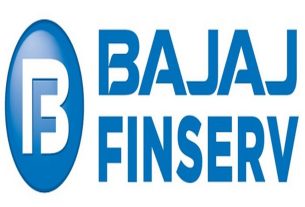If CargoSprint founder and CEO Joshua Wolf were to do it all over again, he would have hired an in-house counsel earlier in his company’s life cycle, although that still might not have prevented the legal turmoil he and his company have yet to see the end of.
Wolf’s company, which provides software for companies involved in the handling of international airline freight, has spent the last four years defending itself against lawsuits alleging it had implemented a tying arrangement in violation of antitrust law, stolen intellectual property from a competitor and violated a competitor’s trademark, among other things.
The company came out on top of the lawsuits with one exception. Judge Lauren Louis of the U.S. District Court for the Southern District of Florida in late 2022 found it guilty of a trademark violation. Wolf’s company, which originally went by the name PayAirCargo, was found to have caused confusion in the marketplace because of the similarity of its name to PayCargo, one of his company’s competitors that filed that lawsuit.
CargoSprint was supposed to change the name under a 2016 settlement, but it continued to use it until late 2019. The court awarded PayCargo $11.6 million in damages plus fees.
“We’re extremely gratified with the court’s decision,” Eduardo Del Riego, PayCargo’s CEO, said in a statement.
Wolf said he’s appealing the decision.
Fast growth
Wolf launched his company with $40,000 a decade ago and it’s since grown into one of two companies that compete heavily in the market for handling payments to freight-forwarders and the companies they work with.
Importers pay freight forwarders to manage their goods when they arrive in the United States, and those companies in turn work with warehouse and trucking companies to store and deliver the shipments.
CargoSprint operates in the middle of these relationships by offering an online platform for the freight handlers to send and receive payments quickly. The company also offers scheduling software.
“I’m a licensed U.S. customs broker,” Wolf told Legal Dive. “I started the company out of my own frustration. Charges had to be paid with a check and air freight moves fast. People want to pick up their shipments and checks don’t move that fast.”
In the first iteration of his business, the company offered a faster way to move checks. In its current iteration, it’s offering a digital way to do it.
“It’s a big industry,” he said. “A lot of money moves around.”
Successful defense
CargoSprint won the closely watched trade secrets case last year in March. The New York Eastern District Court ruled, and the U.S. Court of Appeals for the Second Circuit affirmed, that Turret Labs, the plaintiff, failed to show that Wolf’s company had misappropriated its software to create a competing payment product.
“In the absence of nonconclusory allegations that it took reasonable measures to keep its information secret, Turret Labs has not plausibly alleged that Defendants-Appellees misappropriated a ‘trade secret,’ the appeals court said.
“A court-assigned expert came in, looked at the code on both sides and said, ‘No, there’s no wrongdoing here,’” Wolf said. “We’re sending payments via ACH. There’s nothing revolutionary in terms of trade secrets and how that’s done. It’s really more of a relationship business.”
From Wolf’s vantage point, the New York court system worked through the initial claims quickly and got the case to the point where there was just one issue to settle, which made the matter easier to bring to an endpoint.
“Early in that case, the judge got both lawyers on the phone and kind of weeded through the [differences],” he said.
Even so, his company ended up spending about $200,000 on outside counsel for its defense.
“My big surprise was … we don’t get any of that money back,” he said. “I was so naive to all of this.”
Harder road
The company won the anti-tying case in late 2021, but it was a longer and more expensive road before U.S. District Judge Timothy Batten of the U.S. District Court for the Northern District of Georgia granted summary judgment. In his ruling, Batten said there was no evidence CargoSprint was requiring its customers to use its scheduling software to get access to its payment software, as alleged by its competitor, PayCargo.
Evidence “conclusively shows that no tying agreement exists,” the judge said.
The battle cost his company millions of dollars, Wolf said, something that he never anticipated having to pay when he was building the business.
“We were naive,” he said. “We would never have sued somebody for these things…. I had a good idea and we’re one of the very rare companies that comes to a size where competitors really care.”
Inside advice
The company has since hired in-house counsel but Wolf thinks it might have avoided some of the pitfalls if one was in place earlier.
“A lawyer’s always thinking like a lawyer,” he said. “They’re thinking you’re going to get attacked, and when you do, this is how you protect yourself. We’re thinking, like, ‘No, we’re not going to get attacked. Who would sue somebody over this or that?’”
One area in-house counsel could have helped with is recordkeeping, he said.
“I would look for legal advice on what should and should not be kept,” he said. “We kept everything. We turned over everything. It’s very expensive. But maybe that inside counsel would have said, ‘You know what? You don’t need to keep these documents.’ I don’t know the legal side of that.”
An in-house lawyer also could have given outside counsel useful context that might have saved time and money.
“One of the lawyers we worked with is incredibly smart, knows the law really well,” he said. “But I remember having these conversations and I felt he didn’t really believe me when I said there was nothing there. Then we come to the end of [the discovery process] and he goes, ‘Wow, there really is nothing there.’”
“Looking back, I wish we had an inside counsel,” he said. “We learned the hard way. We’re only still around because we’re kind of tough people. But it took a lot out of us.”



